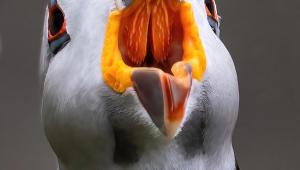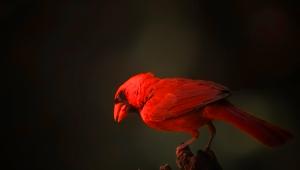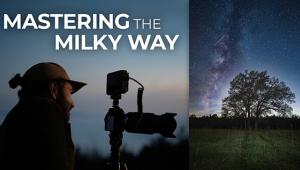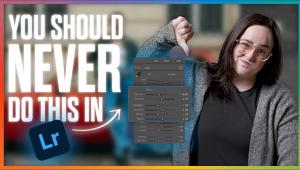Business Trends
Risky Business; Changing Business Models To Do What You Love To Do Page 2
DAW: All the usual suspects. It was a combination of things, like the economic downturn post-9/11, clients shooting things themselves with their spiffy new digital cameras, and stock libraries coming online. I shot mostly products and architecture before business took a nosedive in 2001-'02. My previous clients were local manufacturers and builders and I know at least two of my previous clients stopped sending me work after they saw my new work on my website.

SB: Yikes! What was your next big issue?
DAW: We also switched to a licensing model for pricing my work
at the same time and we lost a lot of clients with that (they wanted to pay
by the hour and have unlimited rights). Through one confrontation with an irate
past client we learned that he was under the mistaken assumption that copyright
was transferred when photographers bill on a time basis. He had actually been
billing his clients a copyright transfer fee and pocketing it! Within six months
of switching direction we were without a single past client.
SB: Dealing with copyright and pricing are difficult for many
creative professionals when building a better business. What was one example
in this area that stands out as a success story for you?
DAW: Mid-negotiation with a pesky client, I was furiously flipping
pages between phone calls and e-mails to get advice and it came to me--know
when to walk away. I did it and walked away from the job due to an inflexible
client unwilling to negotiate. It was eating me up but I had a feeling they
would come around. If not, at least they did not take advantage of me, which
would eat me up for years. Sure enough, they came back much more reasonable
in their expectations, and the job is already done and billed. There is one
person out there who hates my guts, she wasn't able to push me around,
but the creatives are thrilled and so is the client.
SB: Now back to marketing yourself. I see your business model
as the future of photography. To find something you love to do, go after that
work and those clients and at the same time find other "markets"
for those images. In my books and lectures, I call this business model "specialize
to become a generalist." What was the first step in this re-building of
your business?
DAW: Number one was to find new clients who appreciate what
I do. We stopped marketing locally. We put most of our effort into web-based
marketing and aimed for national ad agencies and editorial clients for the work
I love to do. We also diversified to find other markets by getting my work into
a stock photo agency and fine art galleries.
My global stock agency is www.AgeFotoStock.com
and they are great. Our first experience with a gallery didn't work out,
but we are with a new gallery now and it looks very promising. I'd like
to get my work into a gallery in a large metropolitan area like New York or
Miami, where I think the market is probably more in tune with what I do. That
will happen when the time is right.
I'm also starting work on a children's book, which is very exciting
to me. While still very much an assignment photographer, I have to keep myself
from thinking like one. As long as I create simply for the love of creating,
new opportunities present themselves. As I'm sure you can also attest
to, being a creative professional requires a great deal of faith.
SB: Earlier you shared a success story based on your new model
for pricing. Anything come to mind on the marketing side?
DAW: An interesting footnote: just recently I met an individual
in a social situation and it turns out he is now in charge of marketing for
one of my past clients (one of the clients who had bailed upon seeing my new
images of people on the website). We really hit it off and traded business cards.
By the time I returned home and checked my e-mail, there were three messages
from him. He had been to my website and was blown away. It turns out that I'm
a perfect fit for where they want to go creatively. Even if we don't end
up working on this job, it validated all the heartache and hardship we went
through to get to this point.
SB: So now that you have been through the fires of reconstruction,
what tips can you give to our readers on building a better business?
DAW: Don't try to anticipate what the client wants to
see; create for yourself and the clients will find you. Do buy some licensing
software like FotoBiz or P.I.E. so you can license your images in a knowledgeable
fashion. Don't, don't, don't give your rights away by working
on a time basis. Don't be afraid to walk away from the table. Do register
your images with the copyright office. Do specialize. Do think outside of your
local area. Do have fun discovering your personal vision. Do have a killer website!
- Log in or register to post comments
















































